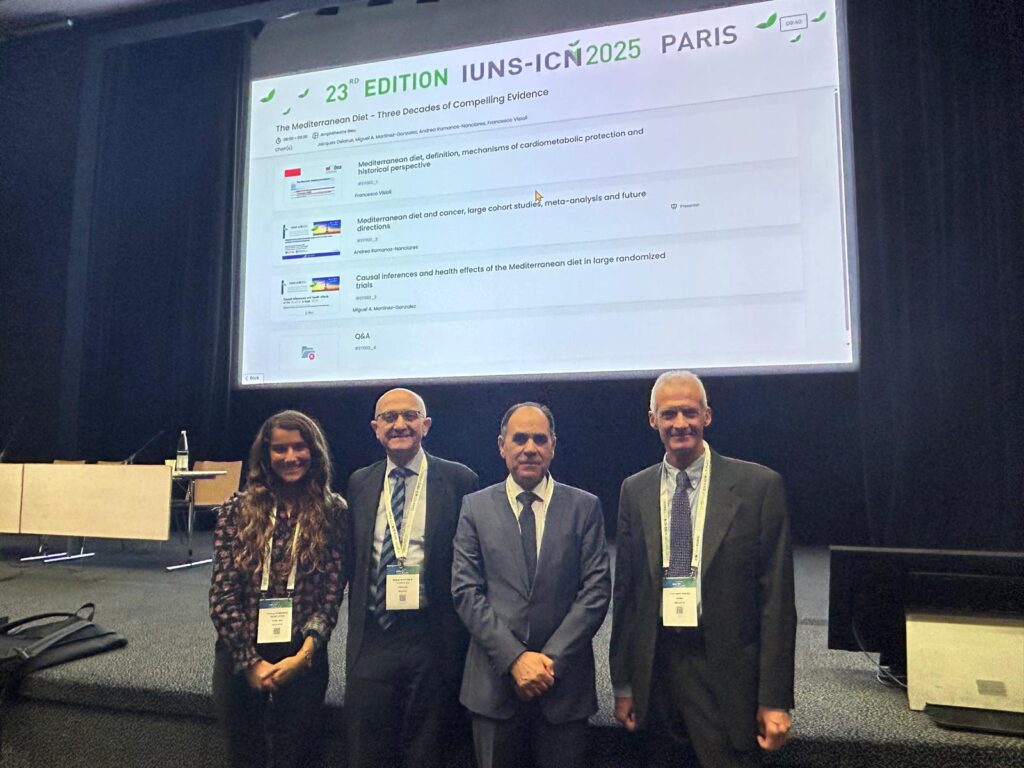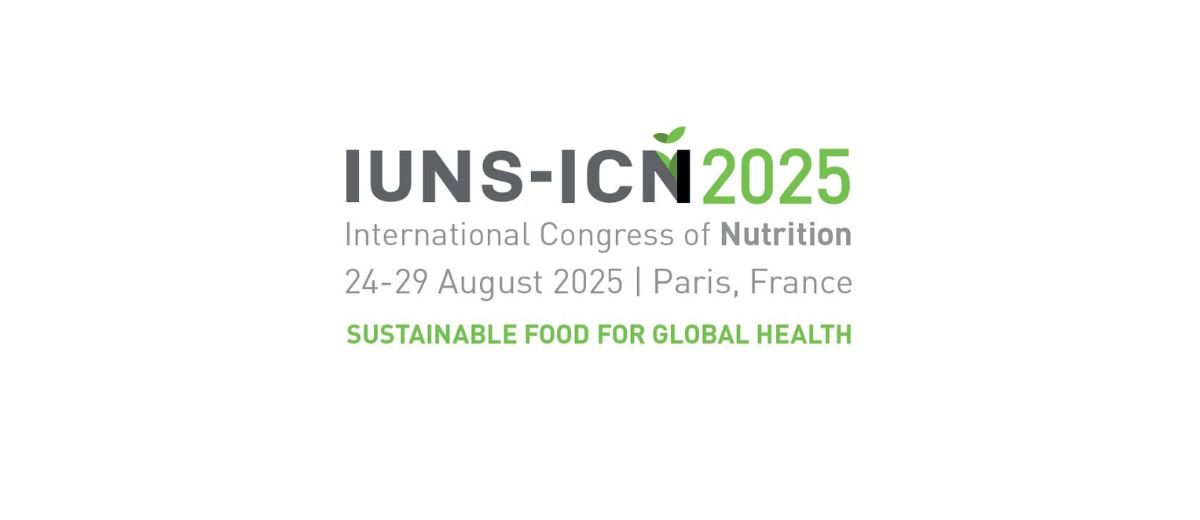The International Olive Council (IOC) took part in the opening day of the 23rd International Congress of Nutrition (ICN), convened in Paris by the French Society of Nutrition and the French Federation of Nutrition. This global event, held under the auspices of the International Union of Nutritional Sciences (IUNS), brings together leading experts and researchers in nutrition from around the world.
IOC collaborators and distinguished researchers such as Professor Miguel Ángel Martínez, Professor Francesco Visioli and Dr Andrea Romanos-Nanclares, participated in a session titled “The Mediterranean Diet: Three Decades of Compelling Evidence” on Monday 25 August. The presentations provided a comprehensive update on the accumulated scientific knowledge surrounding the Mediterranean Diet and its role in the prevention of chronic diseases.
In a subsequent intervention on Wednesday 27 August, Professor Martínez delivered a lecture on “Mediterranean Diet and Cardiovascular Health: State of the Art on Olive Oil and Red Wine”. When focusing on olive oil, he highlighted its unparalleled role in reducing cardiovascular risk, citing recent findings from both epidemiological studies and large-scale randomised trials. The evidence presented reaffirmed that extra virgin olive oil—rich in polyphenols—remains a key component in strategies for cardiovascular disease prevention, due to its anti-inflammatory, antioxidant, and lipid-lowering properties.
 Since the official publication of the Mediterranean Diet Pyramid in the American Journal of Clinical Nutrition in 1995, a significant body of robust epidemiological and clinical evidence has demonstrated the positive impact of this dietary pattern on cardiometabolic health, the metabolome and gut microbiota. The session reviewed both the historical milestones and the future directions of major ongoing international research initiatives, many of which are still to be published.
Since the official publication of the Mediterranean Diet Pyramid in the American Journal of Clinical Nutrition in 1995, a significant body of robust epidemiological and clinical evidence has demonstrated the positive impact of this dietary pattern on cardiometabolic health, the metabolome and gut microbiota. The session reviewed both the historical milestones and the future directions of major ongoing international research initiatives, many of which are still to be published.
As a cornerstone of the Mediterranean Diet, olive oil continues to be at the heart of global public health discussions. The IOC remains committed to advancing research in this area through the Olive Health Information System (OHIS), a joint initiative with the University of Navarra. The OHIS publishes new findings on a weekly basis, helping to inform both the scientific community and the public about the many health benefits of olive oil.
The IOC looks forward to continuing its collaboration with experts and institutions involved in nutrition science to further promote evidence-based dietary patterns that improve global health outcomes.









